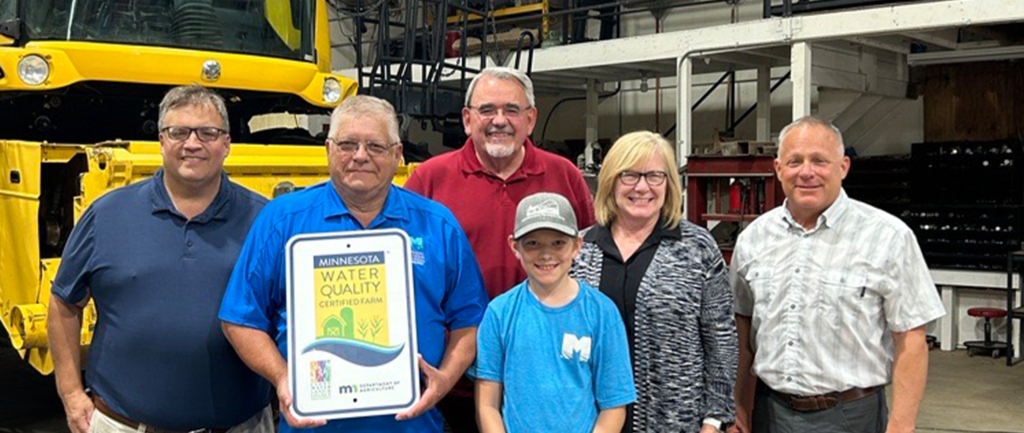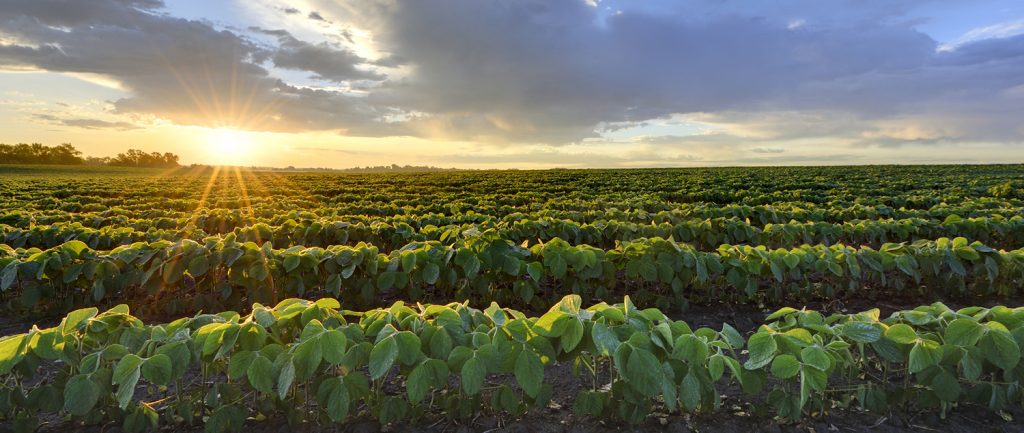No two legislative sessions are created equal. That maxim has never been more true than in 2020, as a global pandemic upended business as usual in St. Paul.
“I’ve never seen anything like this,” says Minnesota Soybean Growers Association (MSGA) lobbyist Cory Bennett. “COVID threw a wrench into the entire process.”
Still, despite the upheaval brought forth by COVID-19 and the looming prospect of a special session, MSGA still managed to secure wins on several policy fronts in the bipartisan ag finance bills. Most notably, the bill clarifies language for the Ag Innovation Campus in Crookston, ensuring $5 million will be directed toward soybean research and value-added agriculture.

The House bill HF4490 is authored by Rep. Jeanne Poppe (DFL-Austin) and SF4395 is sponsored by Sen. Torrey Westrom (R-Elbow Lake). Gov. Walz signed the bipartisan bill last weekend.
“We are grateful to the governor and chairs of the ag committees for their leadership and bipartisan commitment to Minnesota agriculture,” says Mike Skaug, MSGA vice president and advocacy action team chair. “This was obviously a unique session, and we appreciate our elected officials working together to help farmers.”
The AIC will host a specialty crushing facility, allowing universities, commodity groups and private seed developers access to affordable processing that aims to lower costs while promoting growth of value-added products. Once established, the Campus will host private industries to create products from the co-products of the four facilities, benefiting all parties from farm gate to consumers. The funds for the AIC will be released in July.
“We’re full-steam ahead on the Ag Innovation Campus,” Skaug says.
MSGA held its annual Hill Visits on March 11, and was one of the final advocacy groups to meet with Gov. Walz prior to the state’s “stay-at-home” order. The lockdown didn’t prevent farmer leaders from continuing to reach out to legislators and Walz administration officials to ensure MSGA’s legislative priorities were still a focus in St, Paul.
The omnibus bill also included the following provisions:
• increase the fiscal year 2020 appropriation for the agricultural growth, research, and innovation program by $200,000, to $14.553 million, with additional priority on meat and poultry processors in fiscal year 2021;
• increase by $25,000 in fiscal year 2021 farm safety grants and outreach programs, to a total of $125,000, with $75,000 for grain storage facility safety grants and $50,000 for outreach;
• appropriate $175,000 in fiscal year 2020 for grants to farmers who have been approved for farm debt restructuring loans guaranteed by the USDA, Farm Service Agency or Rural Finance Authority loan programs to cover the loan origination fees; and
• appropriate $125,000 in fiscal year 2020 for grants to grocery stores to develop safety procedures, update and retrofit locations, purchase personal protective equipment for employees and educate the public on the need to follow safety procedures during the coronavirus pandemic.
Omnibus Agriculture Policy Bill
In addition, last week the Senate and House passed HF4285/SF4223 authored by Rep. Poppe and Sen. Bill Weber (R-Luverne). The bill includes initiatives requested by the Minnesota Department of Agriculture (MDA), along with provisions from other bills the panel heard earlier this session. Gov. Walz also signed off on the bill.
The bill modifies state seed and noxious weed laws; and laws governing perishable farm product buyers, state loan programs, eggs, meat and poultry inspections, farm safety, grain buyers, emerging farmers, hemp, agricultural education and pet food.
The bill also:
• modifies seed and noxious weed law, including regulatory categories for noxious weeds and the management plans used to control noxious weeds;
• classifies data MDA receives from industrial hemp applicants and license holders as private;
• creates a working group the agriculture commissioner must periodically convene to support emerging farmers. The group must include women, veterans, people with disabilities, American Indian or Alaskan Natives and communities of color;
• encourages MDA advance up to half of grant awards to new farmers, members of protected groups or veterans. The committee amended the 50 percent requirement out of the bill after negotiations with the Senate;
• allows the commissioner to award grants to farmers and schools that retrofit tractors with rollover prevention devices;
• allows MDA to award grants to farmers who purchase grain storage safety equipment and create a farm safety outreach program;
• gives veterinarians immunity from civil or criminal liability when they report suspected animal cruelty or put an animal down when it has been mistreated to the point where it cannot humanely be saved;
The Legislature will reconvene for a special session to wrap up the tax and bonding bills, tentatively scheduled to begin in mid-June. The House’s bonding bill calls for $2.03 billion in bonds, while the Senate countered with $998 million.
MSGA will continue to advocate for Section 179 conformity. Senate Majority Leader Paul Gazelka said this week both chambers had been working on a bipartisan compromise on Section 179.
“Even though this session has been highly unusual, we remain committed to the policy priorities we set for 2020,” Skaug said. “It’s a testament to our farmer advocates and the entire MSGA team that we’ve still been able to gain some substantive policy wins in the face of some difficult circumstances.”





